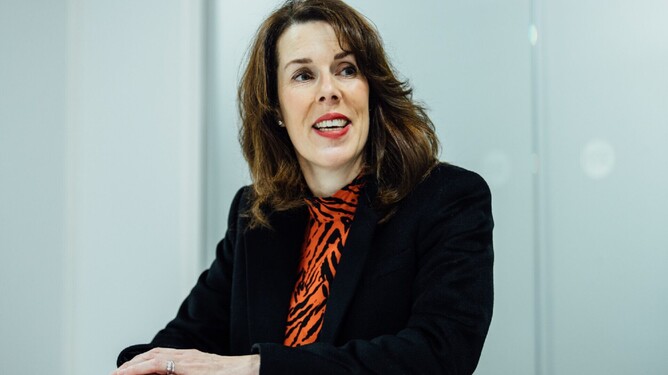In discussion: North East export team becomes a part of the Department for International Trade.
Julie Underwood is Head of Delivery for the North East Export Team, which supports North East businesses throughout their exporting journey.
The team has recently become a part of the Department of International Trade and relocated to Darlington Economic Campus. Julie explains why this change has happened and the impact it will have on support for businesses in the region.
You and your team have now made a move to the Department for International Trade, from the North East England Chamber of Commerce. Why has this happened?
It’s a key part of the government’s agenda to have advisers working closely with businesses in the regions. By bringing our team into the Department for International Trade (DIT), it means we can react quickly to central decision-making and, at the same time, we can feed back on the needs of businesses in the North East, provide intelligence from our region and influence policy.
We’re based in new Darlington Economic Campus alongside colleagues from five other government departments, including the Treasury and the Department for Business, Energy and Industrial Strategy. It’s the first time we’ve been able to work closely with cross-departmental government colleagues in this way which in itself is a huge benefit for the region.
What are the implications for your work? Will businesses notice a difference in what you do?
No, we still have a dedicated team that is for businesses in the North East and which is based here in the North East. The support we offer will continue, including our Export Academy, which is a free training programme for businesses which we run both online and in-person. We also have specialist programmes on topics like e-commerce and working with distributors, and we organise trade missions to introduce North East businesses to overseas customers. Businesses can also access our Internationalisation Fund, which can provide a maximum grant of £9,000 to support activities to help them export. We would encourage any business to get in touch to explore how this can really help them with their export plans.
This programme of support is unchanged, the team is unchanged, and support for North East businesses remains front and centre of what we do. But now we’re much closer to central decision-making and we have brilliant opportunities to share knowledge with our colleagues across the UK.
In addition to our ongoing work with businesses, we have well established relationships with partners in the North East, the North East LEP being a key example, and we will continue to work together as partners in the region to drive forward the North East trade and export strategy proposition and inform future trade deals about North East assets.
The economy is going through difficult times. What can we do to ensure we keep trading?
It has been tough for businesses, but as travel has opened up it’s had a big impact.
We did a lot of virtual work throughout the pandemic but now we can travel overseas, we need to take the opportunity to meet international buyers in person, and we have trade missions to markets including Japan and Norway coming up over the next few months and many more in the pipeline.
We’ve created a network of export champions in the North East who are happy to share their expertise with other businesses, and we’re piloting some new events specifically for businesses from under-represented communities.
And in November the Green Trade and Investment Expo, which will bring together UK businesses with global investors, is happening in Gateshead, giving the region a leading role in showcasing our renewable energy sector.
There’s lots going on, a lot of support available, and as part of the DIT, we’ll continue to give North East businesses all the support they need to access overseas markets, and make that as easy a process as possible.
Find out more about export support for North East businesses at www.NorthEastGrowthHub.co.uk and see the North East’s Trade and Export Strategy here.




